On July 13, 2022, the closing ceremony of the First Wuhan University Summer School for Graduate Students in Big Data Management and Application was held in the meeting room No. 212 of the SIM building, announcing the successful completion of this six-day big data academic feast.
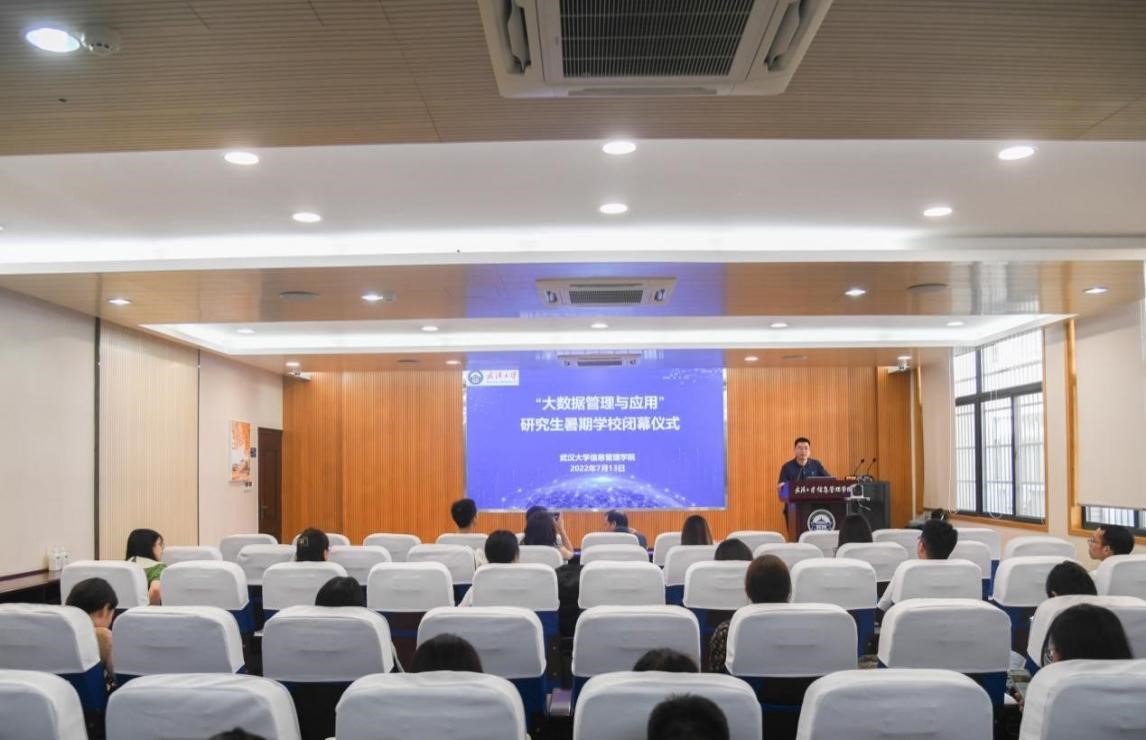
On the morning of July 8, the virtual lectureBig Data Mining and Emergency ManagementbyXin Lu, Professor at National University of Defense Technology, kicked off the Summer School. Professor Lu explained the application of big data technology in earthquake, epidemic and other emergency rescue fields by reading literature.
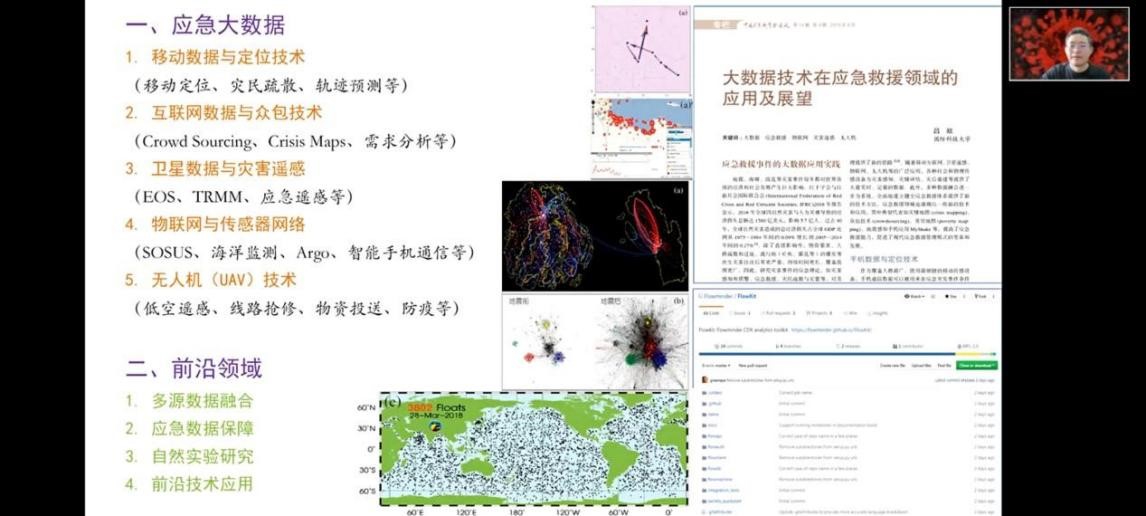
Haoxiang Xia, Professor at Dalian University of Technology, focused on the topic transfer behavior of researchers and the structure of scientific research collaboration network, and discussed the application prospect of scientific research big data in scientific and technological policy analysis and comment.
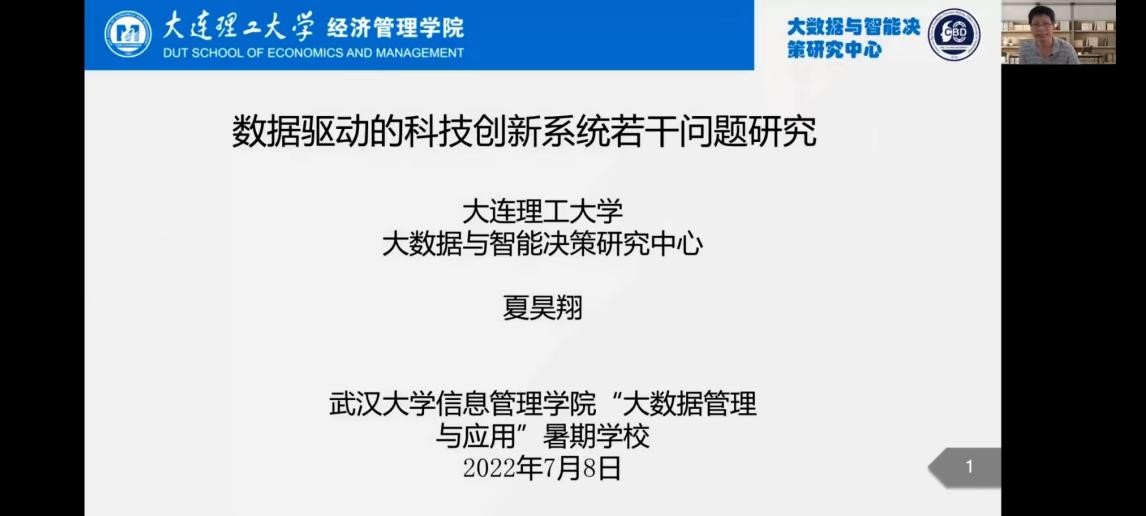
Liang Hong, Professor at the School of Information Management, Wuhan University, explained the necessity of constructing financial knowledge map from the perspective of reducing financial risks, demonstrated the functions of penetrating equity inquiry, financial risk identification and cross-shareholding analysis, and put forward the prospect of the construction and application of temporal financial knowledge map.
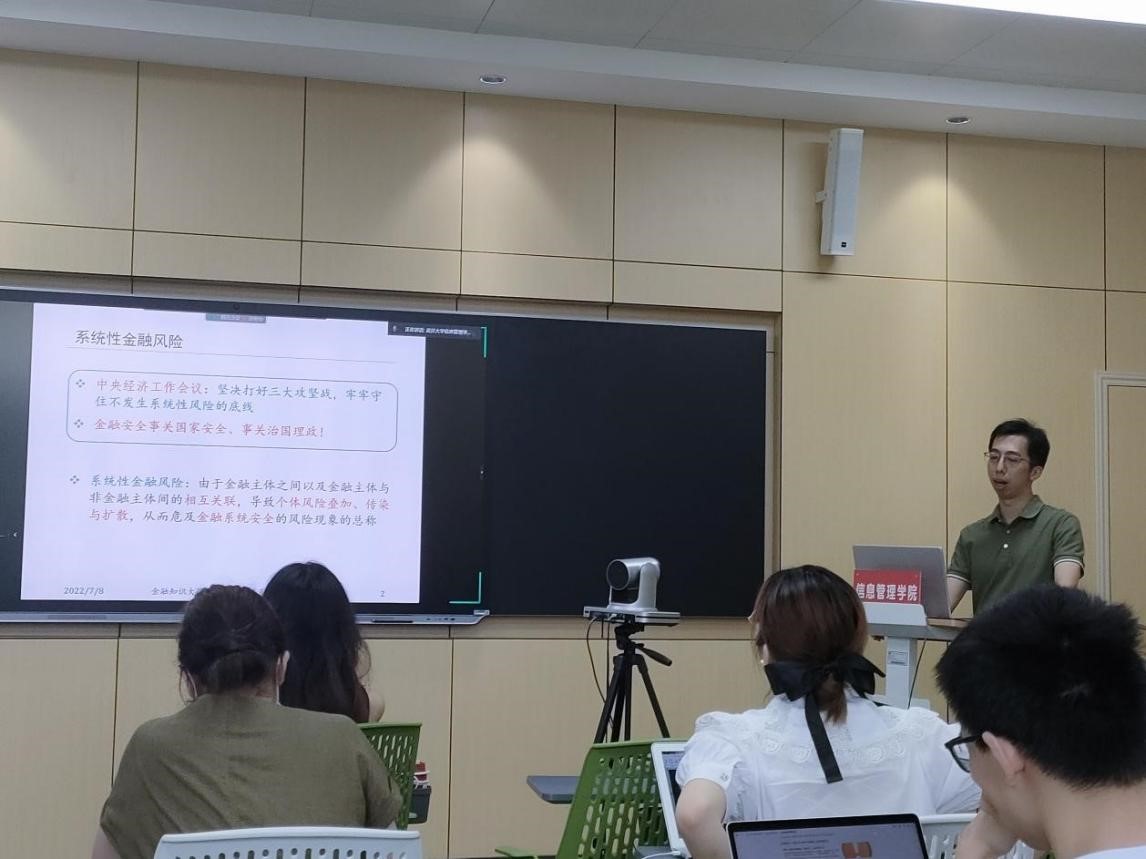
Based on the specific case of noctilucent remote sensing,Xi Li, Professor at State Key Laboratory of Information Engineering in Surveying, Mapping and Remote Sensing, Wuhan University, introduced the application of noctilucent remote sensing in the fields of socio-economic parameter estimation, urbanization and regional development evaluation, fishery monitoring and fire point monitoring.
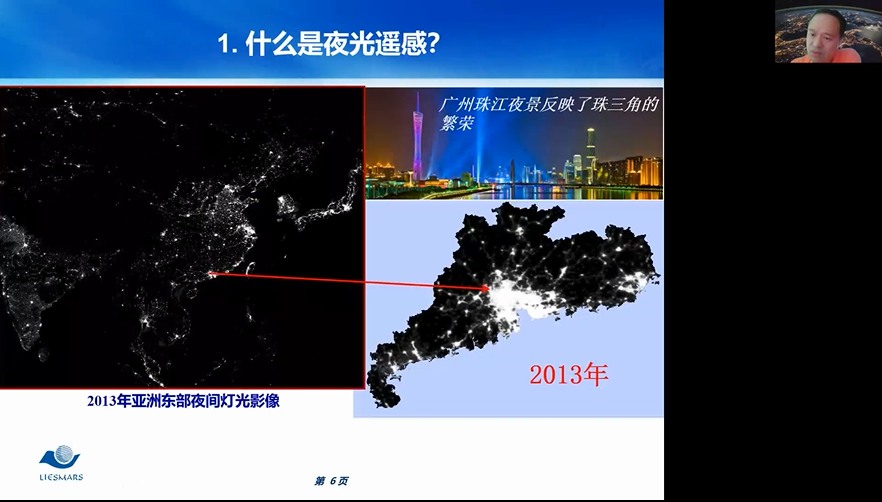
Long Lu, Professor at the School of Information Management, Wuhan University, focused on the application of AI technology in biomedical field, introduced three biomedical big data modes: omics, image and text, and analyzed the characteristics and challenges of biomedical big data.
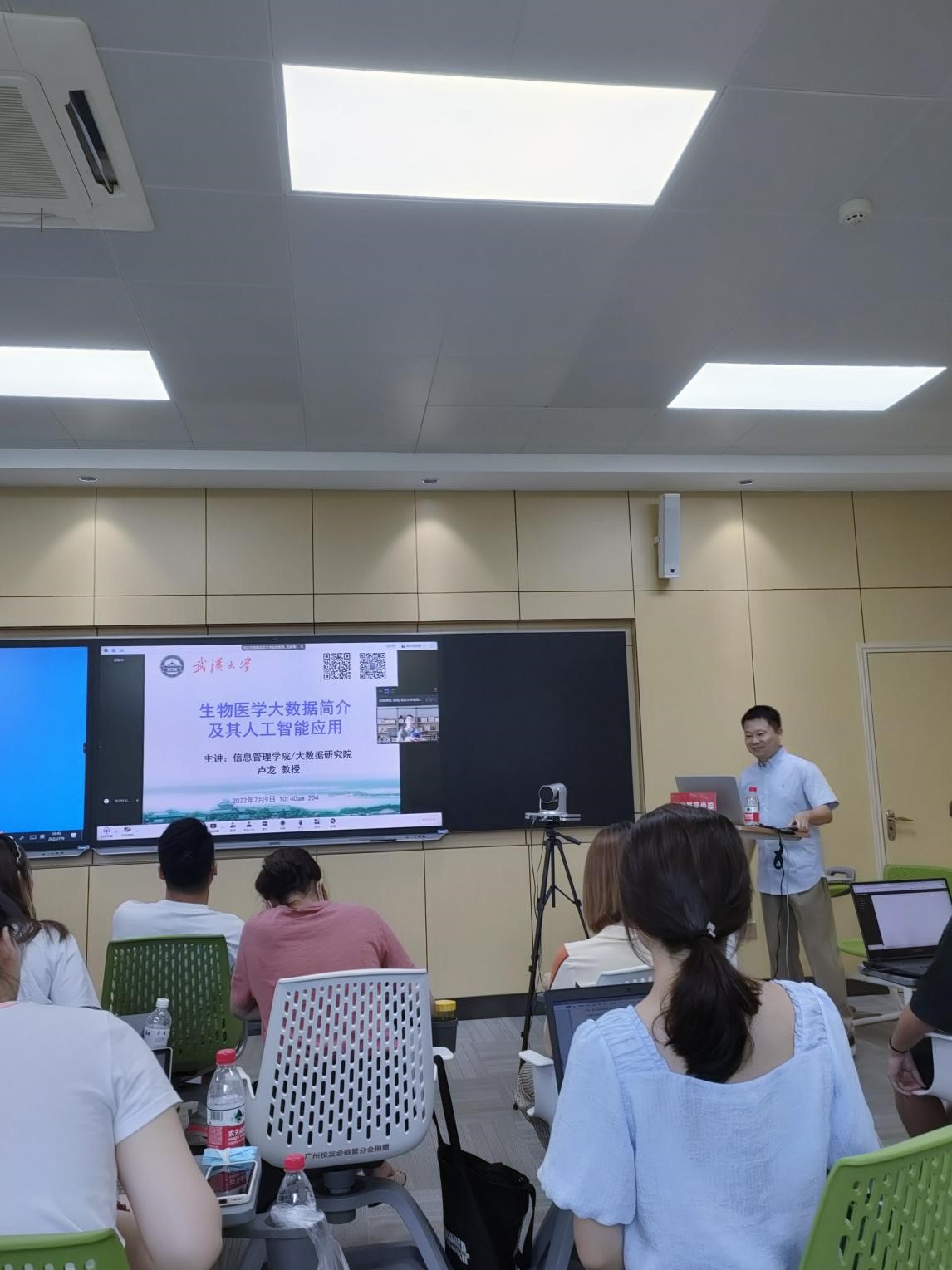
Weigang Gong, Associate Professor at School of Sociology, Wuhan University, lectured on the basic knowledge of cloud computing, the acquisition and storage of big data, the processing algorithm of unstructured data, the development of social media big data, etc., and demonstrated the powerful functions of Google Cloud platform through on-site technical presentation.
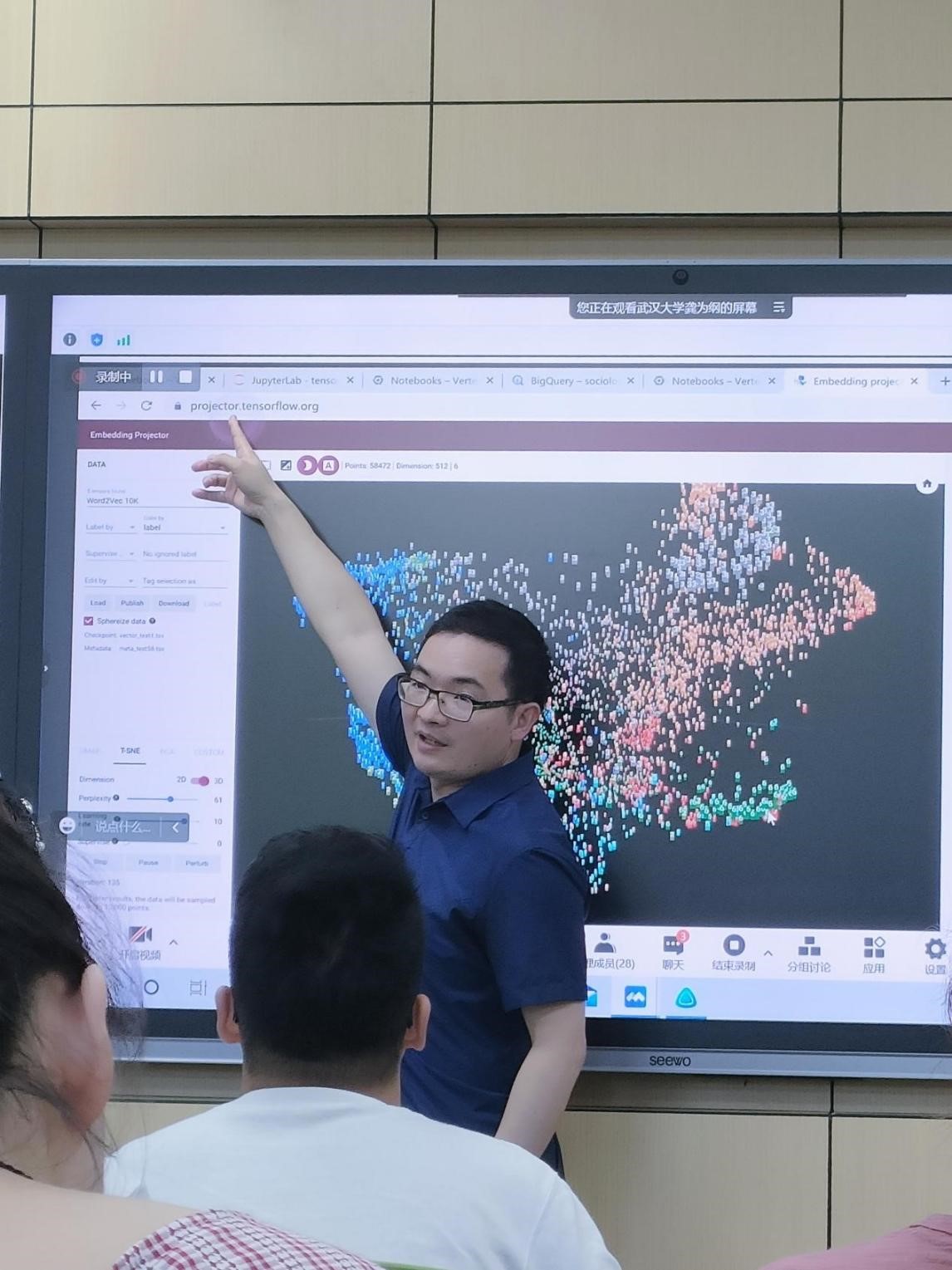
Jianxun Zeng, Researcher at Institute of Scientific and Technical Information of China, expounded the current situation and problems of journal database development in China, and put forward some transformation measures such as clear and open charging standards, strengthening knowledge services, and constructing diversified evaluation systems.
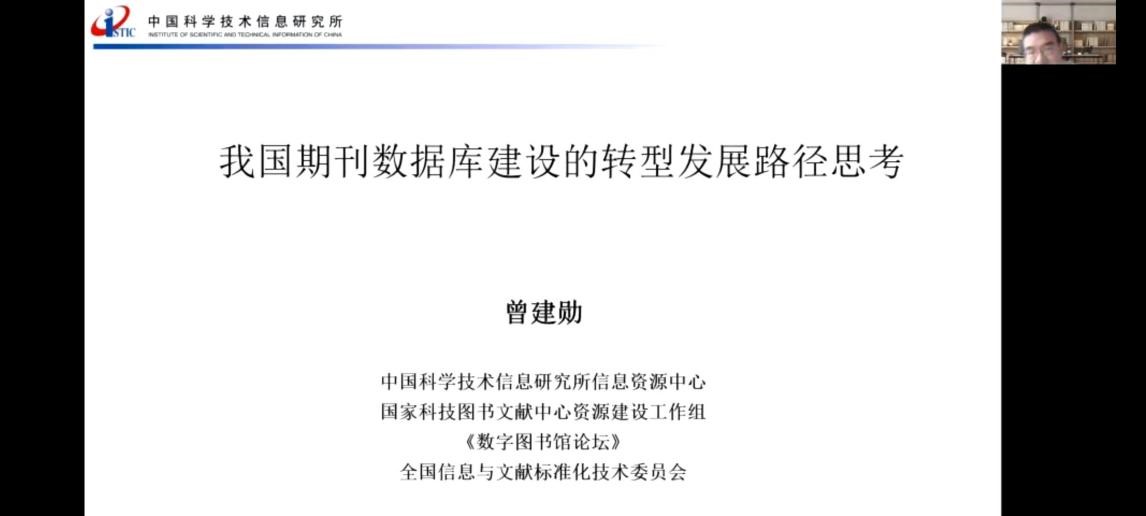
Huiping Zhang, Professor at University of Electronic Science and Technology of China, took the government data flow as the theme, and analyzed the ways, difficulties and countermeasures of government data flow.
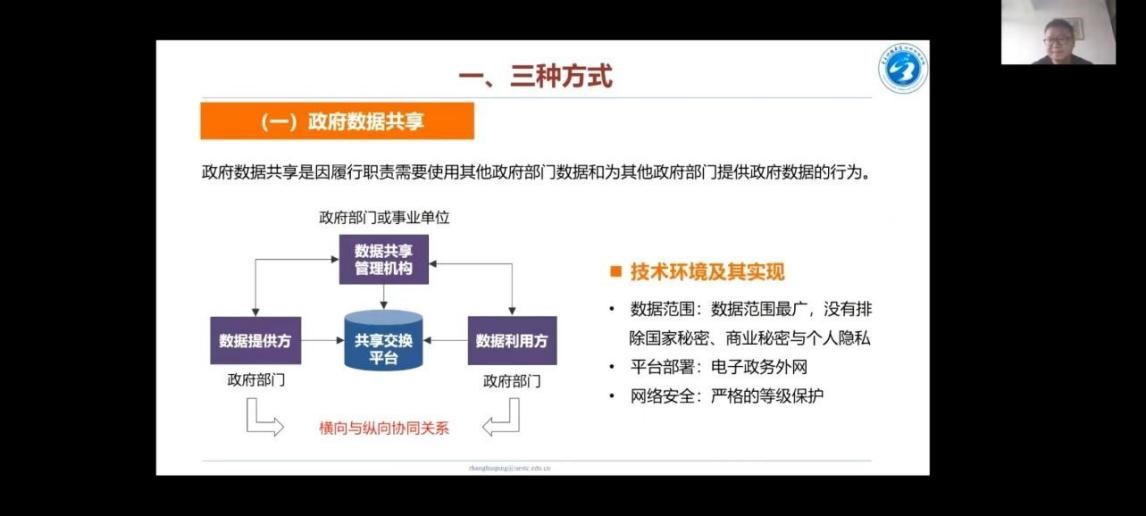
Shengli Deng, Professor at the School of Information Management, Wuhan University, revealed the security risks in the big data environment through case explanation, and put forward preventive measures from the perspectives of talent team building, publicity, education, safety supervision and inspection, emphasizing the vital importance of civil air defense.
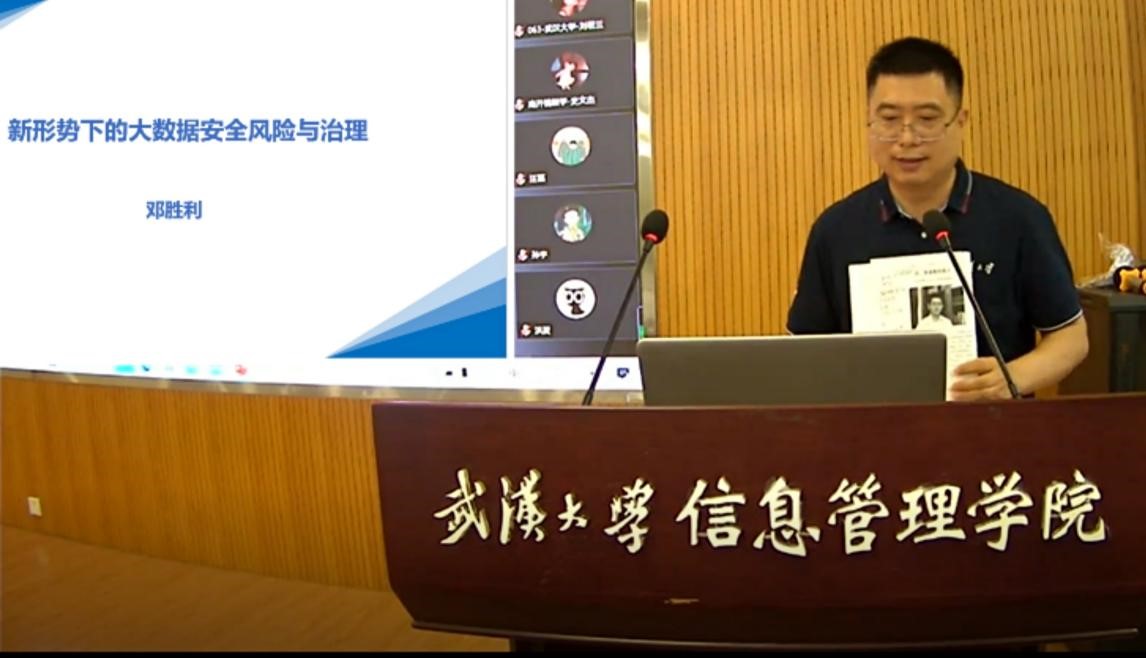
People attended the Frontier Forum of Library, Information and Data Science Theory were as followings:
Enmei Song, Executive Deputy Editor of Documentation, Information & Knowledge (in Chinese),
Gaohui Cao, Professor and Associate Dean of the School of Information Management, Central China Normal University,
Pingpeng Yuan, Professor at the School of Computer Science and Technology, Huazhong University of Science and Technology,
Shengli Deng, Professor at the School of Information Management, Wuhan University,
Liang Hong, Professor at the School of Information Management, Wuhan University,
Jin Mao, Associate Professor at the School of Information Management, Wuhan University,
Ying Huang, Associate Professor at the School of Information Management, Wuhan University.
They revealed the development direction of big data management and application to students from the aspects of talent education, social service and learning methods, and answered their questions.
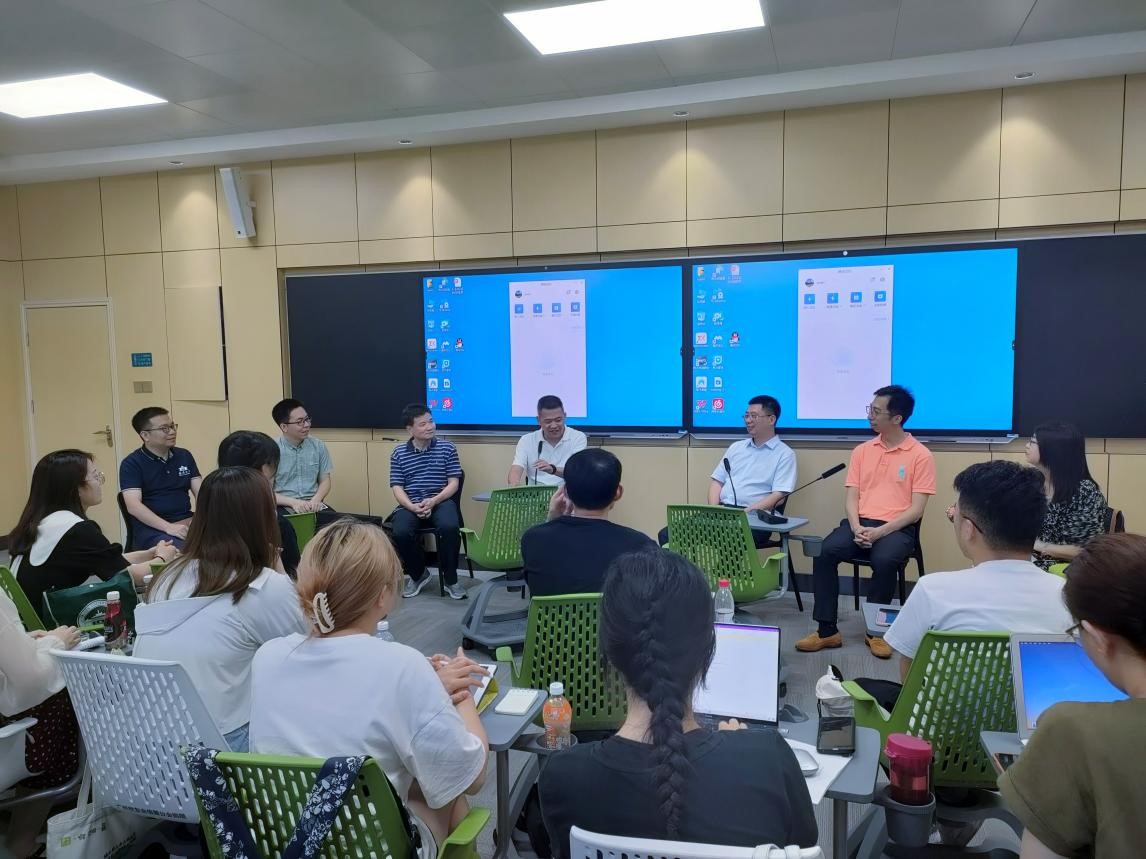
From the perspective of what data science is and what to do,Dan Wu, Professor at the School of Information Management, Wuhan University, emphasized that people-oriented is the key to data science education, and constructed the undergraduate-graduate data science education curriculum system model from the perspectives of knowledge, skills and employment.
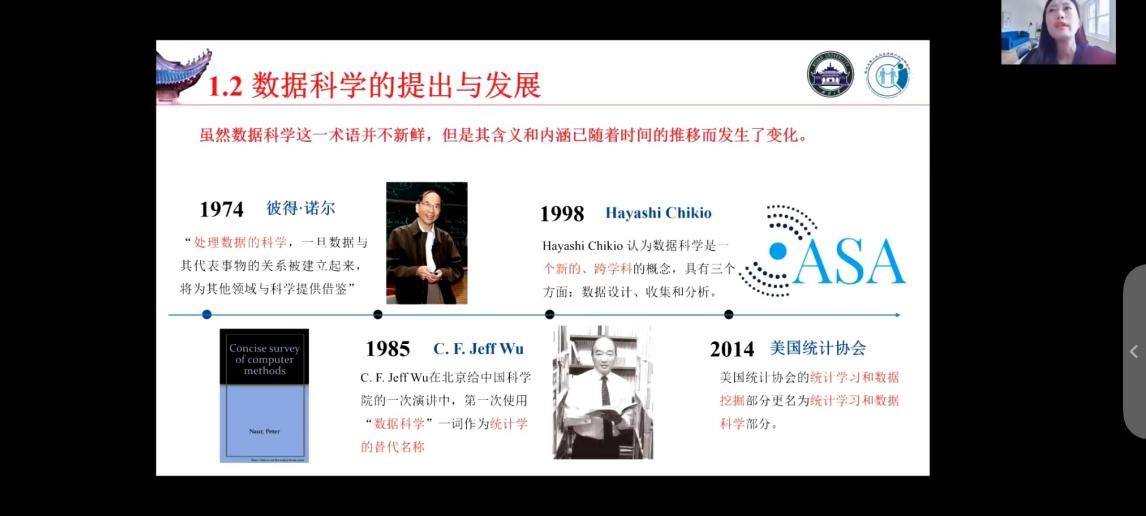
Keshu Yao, Security Director of Department No.9 of China Space Sanjiang Group Co., Ltd., told the relevant requirements of big data security from the aspects of laws, regulations and standards, and analyzed the digital application status, problems and construction prospects of military enterprises from the perspective of enterprise practice.
Xiaomi An, Professor at Renmin University of China, introduced the core concepts, objects and characteristics of data governance in international standards, constructed the ecological system framework of big data standardization collaboration from micro, meso and macro levels, and made critical reflection and research prospects on big data governance.
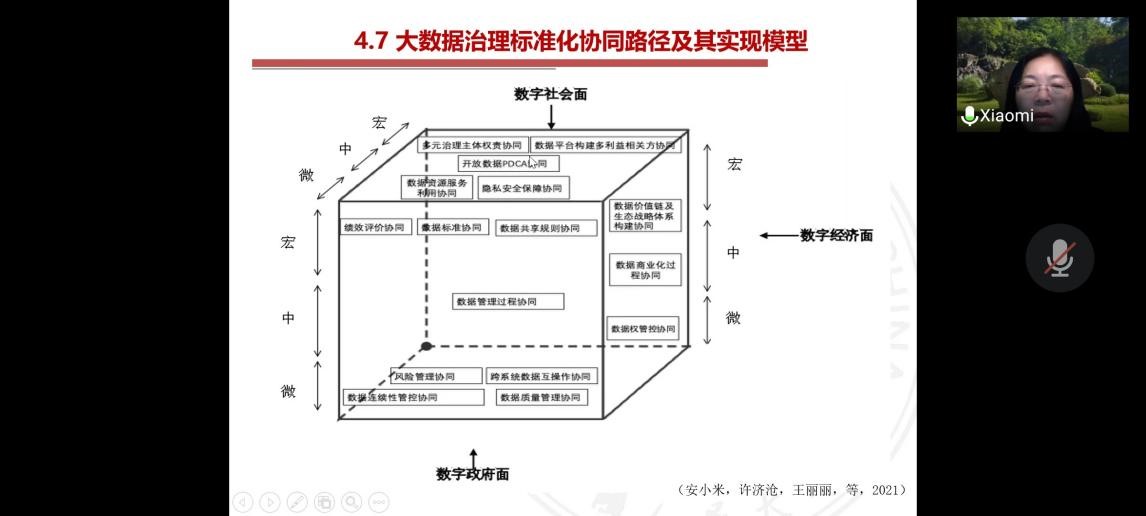
Zhu Wang, Professor at Sichuan University, emphasized the important role of intelligent justice, and discussed the bottleneck of current judicial AI technology, the realization path of "quasi-syllogism" in which the knowledge of civil and commercial judicial adjudication can be calculated, and the path of mathematical logic "simulating" legal logic.

The Luojia Big Data Method Training Camp byXin Luo, Professor at the University of New Mexico, adopted a combination of lectures, literature reading and report sharing to help students get familiar with and master the normative process, common research errors and classic theories of empirical research on information systems in the digital intelligence era.

Bolin Kong, Big Data Scientist of Huawei, introduced the development and management platform, user growth analysis platform, growth marketing platform, data warehouse platform and other big data product platforms from the perspective of typical scenarios of Huawei terminal cloud big data, and expounded their architecture, functions and advantages.
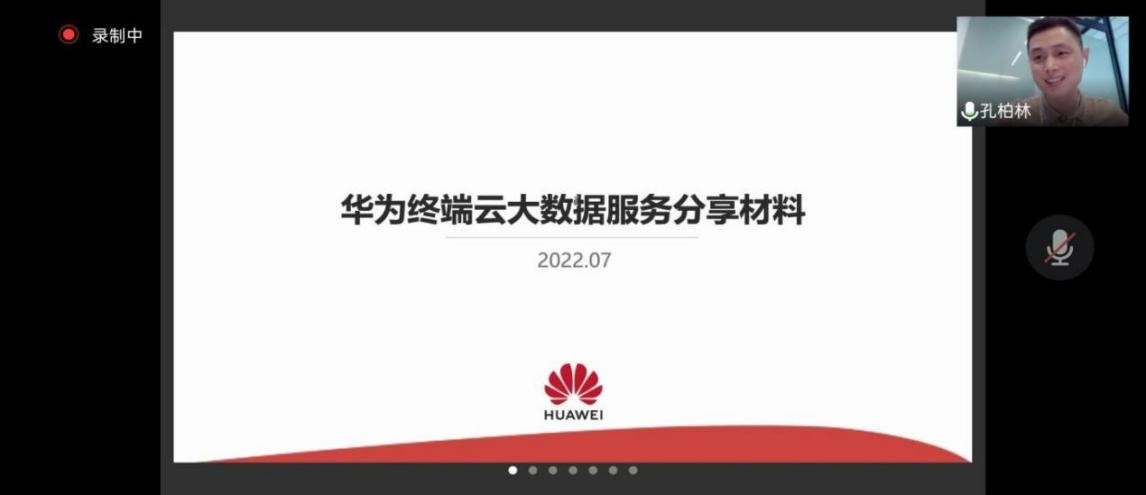
At the student forum of Data Governance under the Background of Intelligence+ hosted byYang Zhao, Professor at the School of Information Management, Wuhan University, onsite students of Summer School shared the application of big data technology in enterprise data governance, online health data governance, information resource data governance and other fields through group cooperation and thematic report. Professor Yang Zhao encouraged students to carry out research with more academic value and practical significance.
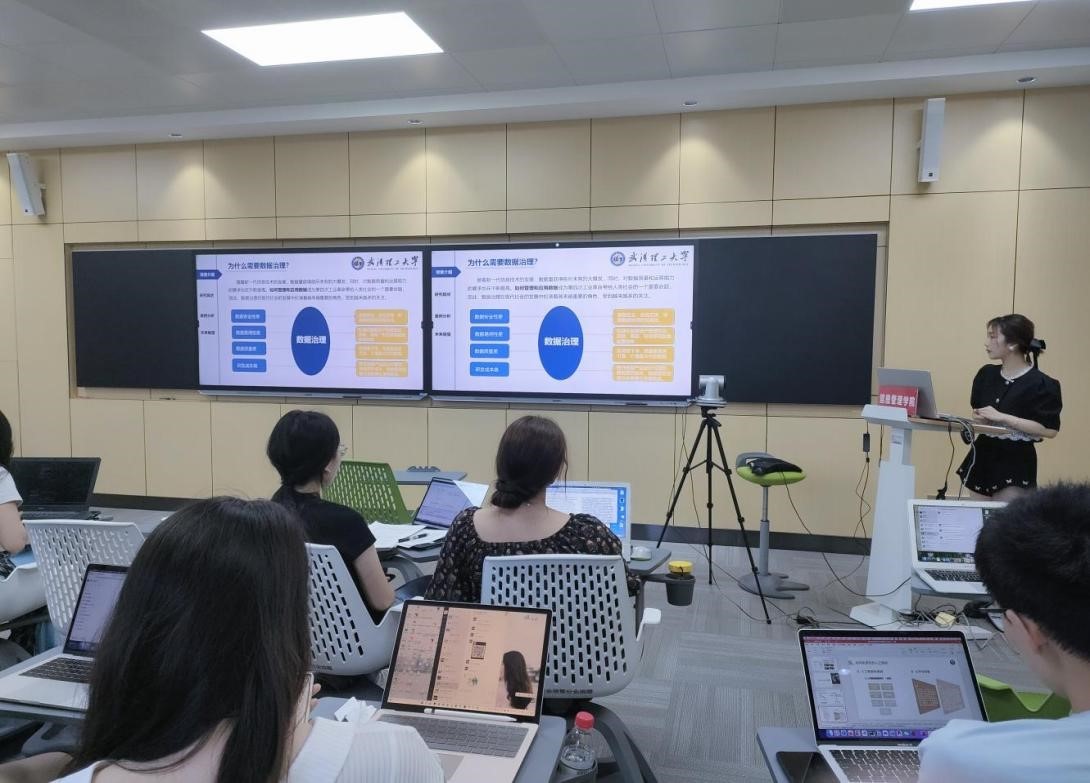
Xiaomeng Du, Chief Data Scientist of Beijing Percent Technology Group Co., Ltd., analyzed the value of intelligent technologies such as AI, blockchain, cloud computing and big data in industries such as public security, energy monitoring and retail forecasting, and believed that building a curriculum system for training big data talents for jobs and occupations is a question that society and universities need to answer.
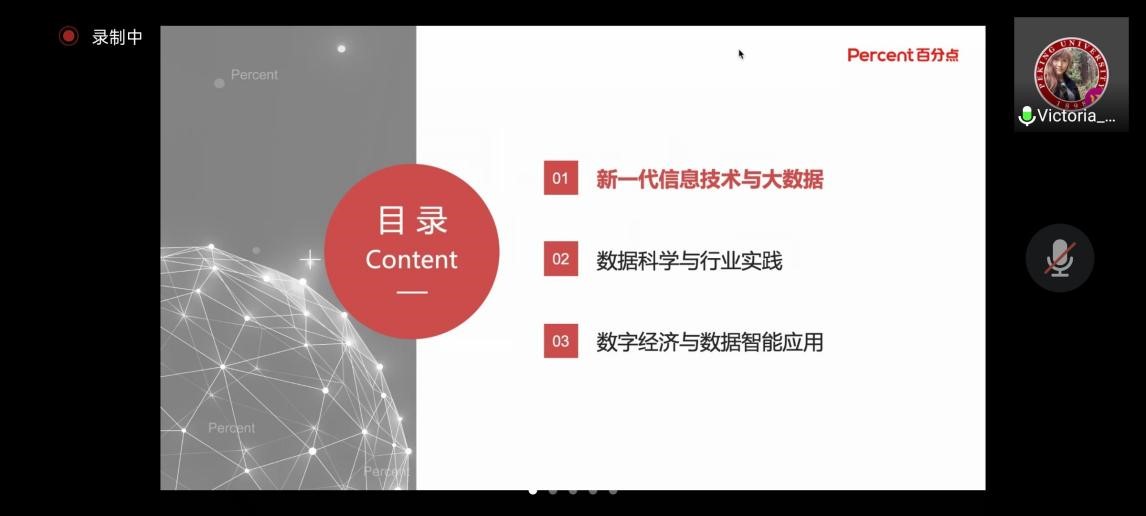
The student forum with the theme of Management Decision Driven by Data Intelligence is the final course of the Summer School. Under the guidance of Associate ProfessorYong Huangand Associate ResearcherFan Zhang, the students demonstrated and communicated with each other from four aspects: scenes, problems, methods and application cases, combined with their own research fields or study and life.
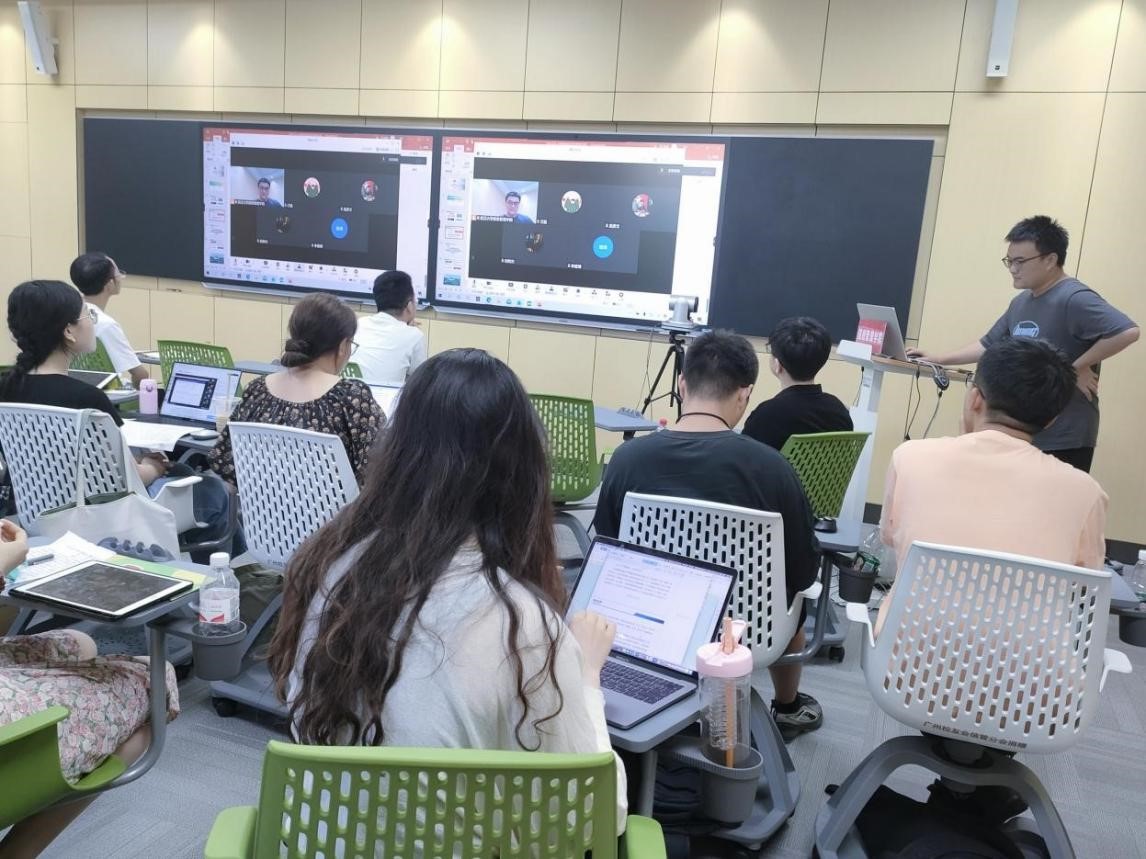
At the closing ceremony, the Summer School also issued Certificates of Completion to all students and Certificates of Excellent Students to those who performed well.
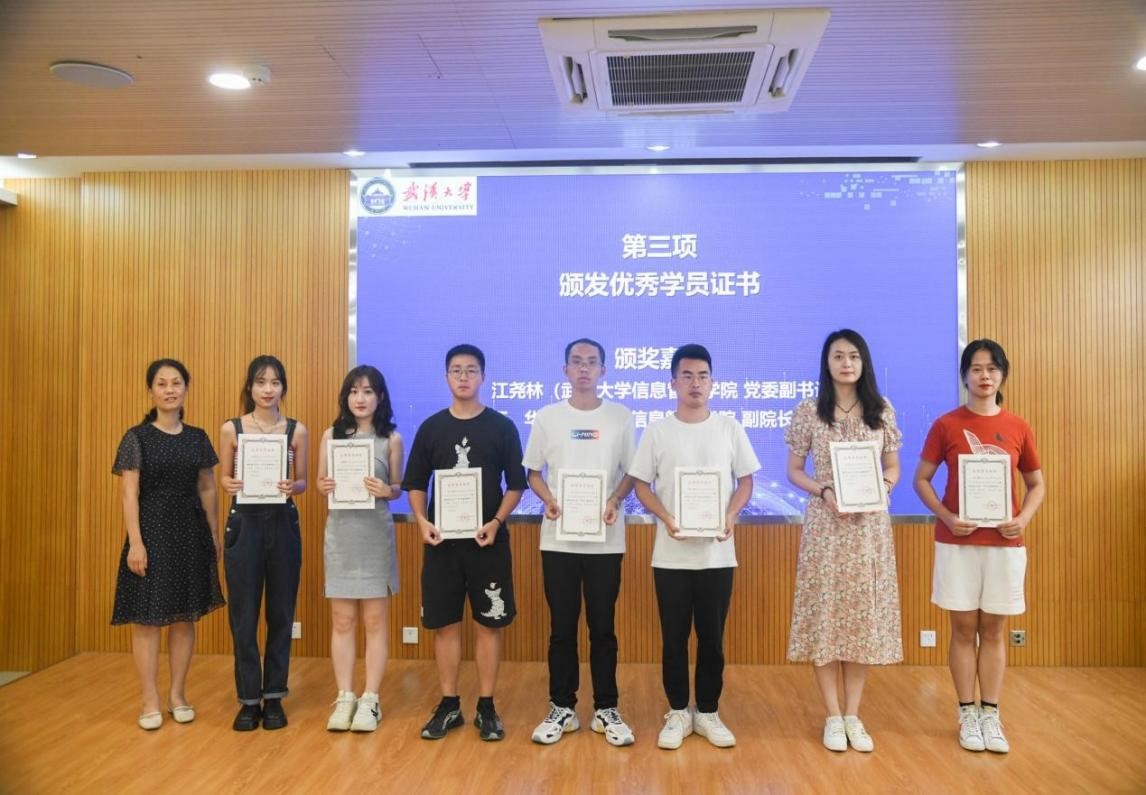
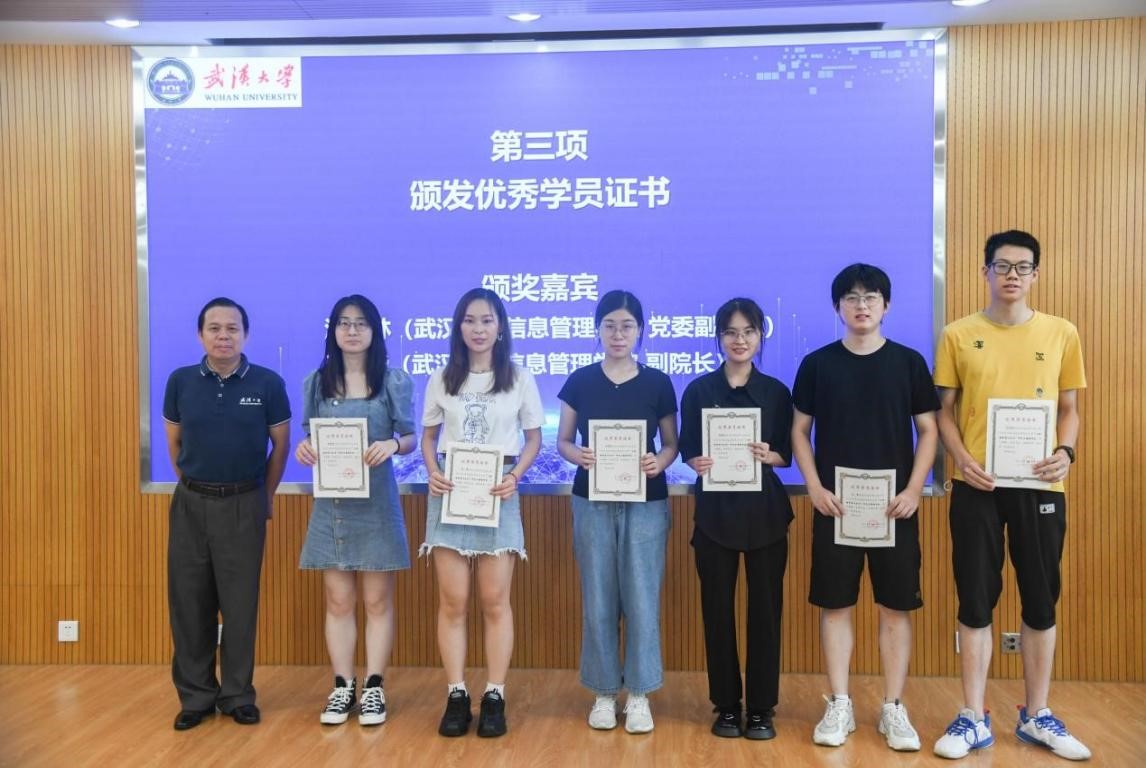
The six-day summer school led the students to have a deep understanding of the frontier trends of big data management and application, helped them broaden their academic horizons, and helped to promote research and innovation capability.